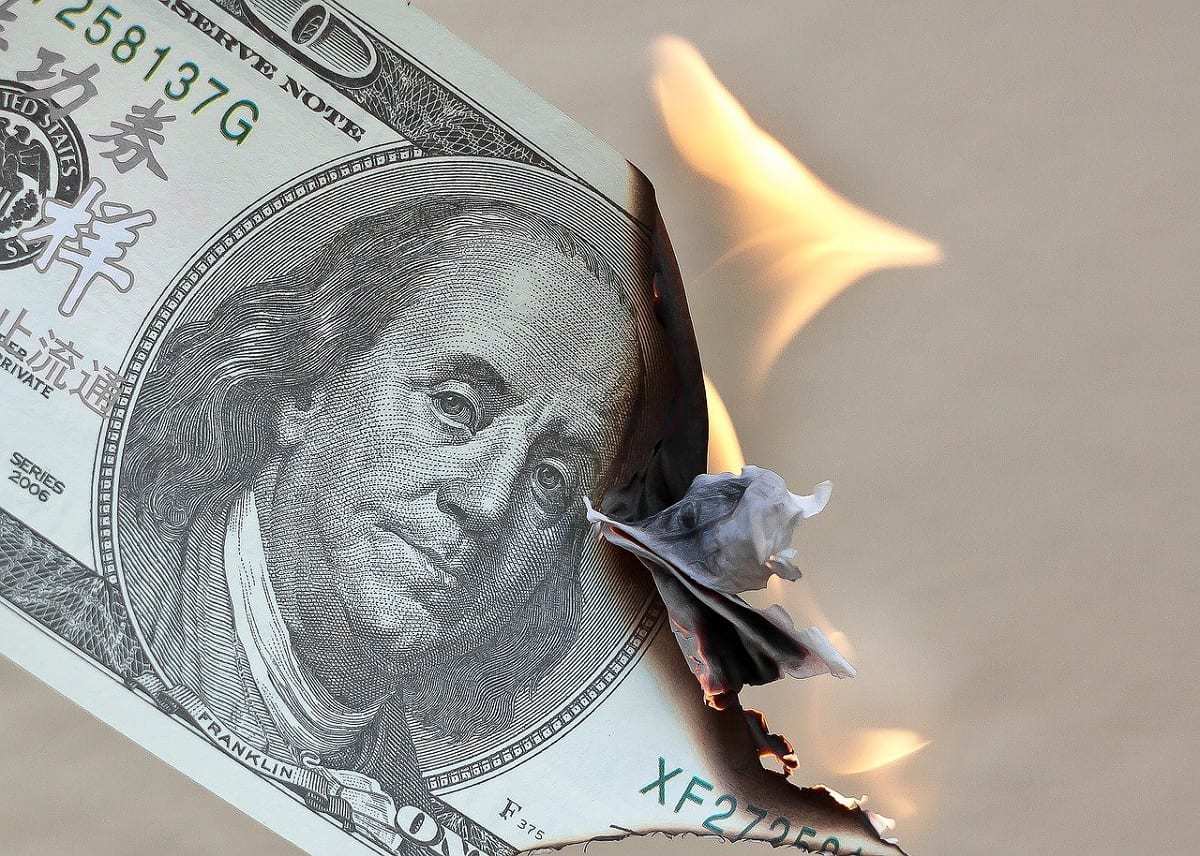The best that can be said of today’s Federal Reserve meeting is that the Fed is no longer in total inflation denial. However, it certainly cannot be said that the Fed has taken policy action to address its present twin challenge of rising inflation and emerging asset price bubbles. This raises the chances that we will have a hard economic landing next year.
It would be an understatement to say that the Fed has been blindsided by inflation’s recent rapid pickup. At the start of the year, the Fed assured us that inflation would be only marginally above its 2 percent inflation target. In the event, over the past twelve months, consumer price inflation has risen to 5 percent or to its highest level in the past 12 years. Meanwhile, producer price inflation has accelerated to around 6 ½ percent suggesting that considerable inflationary pressure remains in the pipeline.
More disturbing yet is the recent sharp acceleration in inflation. As measured by the Personal Consumer Expenditure Deflator, excluding energy and food prices, which is the Fed’s favored inflation measure, over the past three months inflation has been running at an annualized 7 percent rate. At the same time, wages appear to have been increasing at their fastest pace since the 1990s.
The Fed also appears to have been blindsided by the asset price inflation to which its ultra-easy monetary policy has given rise. It did not anticipate that house prices would be increasing today by 12 percent a year, or at their fastest pace since 2006. Nor did it anticipate that equity valuations would rise to more than double their long-term average or to a level that has been experienced only once before in the last hundred years.
To its credit, for 2021 the Fed has now revised up its inflation forecast to 3.4 percent and its economic growth forecast to 7 percent. In addition, in an apparent nod to the idea that in a year or two the economy could overheat, a majority of the Fed’s Governors believe that interest rates will need to be raised twice in 2023 rather than only in 2024 as they had earlier anticipated.
However, clinging to the idea that today’s inflation will be but a passing phenomenon, the Fed is rejecting any notion of an interest rate hike this year. In addition, seeming to have learnt nothing from our past painful experience with asset price bubbles, the Fed is planning to continue buying $80 billion a month in US Treasury bonds and $40 billion a month in mortgage-backed securities. As if a booming housing market needed continued Fed support.
At a time that the US economy is experiencing its largest peacetime budget stimulus on record and that there is an unusually large amount of pent-up demand in the economy, the Fed’s intention to keep interest rates unchanged at least over the next year runs the risk that we will soon get an overheated economy. That in turn might very well overwhelm any inflation relief that we might get from the removal of the supply-side bottlenecks that we are now experiencing as the economy recovers from the pandemic.
At the same time, the maintenance of interest rates at their present ultra-low level, together with the continued purchase of mortgage-backed securities at their present pace risks further inflating today’s equity and housing market bubbles. That in turn would seem to be setting us up for a hard economic landing next year when the Fed is forced to raise interest rates to meet its inflation target.
All of this is not to say that the Fed has easy policy options. Indeed, if it leaves interest rates unchanged it risks higher inflation, while if it raises interest rates too much it risks bursting the asset price bubble and killing the recovery. Rather, what it is to say is that the Fed has chosen to take the path of least resistance and to effectively do nothing now to wind down its ultra-easy monetary policy stance. It is choosing that path in the hope, against all the clues to the contrary, that somehow our inflation and asset price bubble problems will take care of themselves.
Desmond Lachman is a resident fellow at the American Enterprise Institute. He was formerly a deputy director in the International Monetary Fund’s Policy Development and Review Department and the chief emerging market economic strategist at Salomon Smith Barney.

